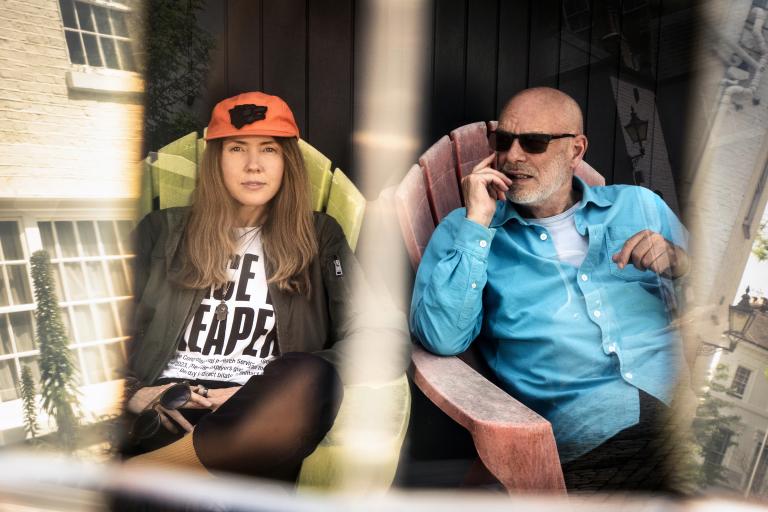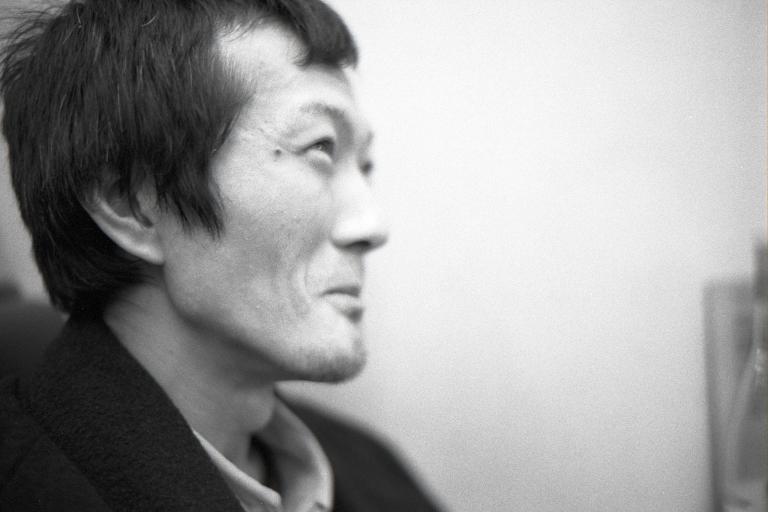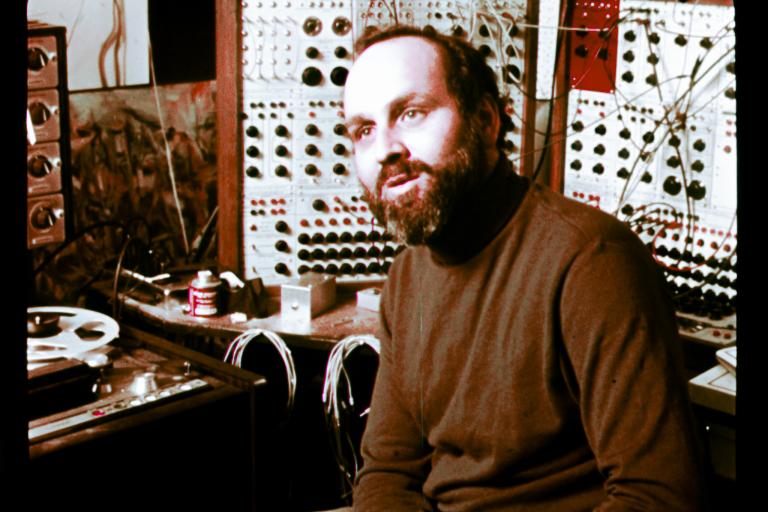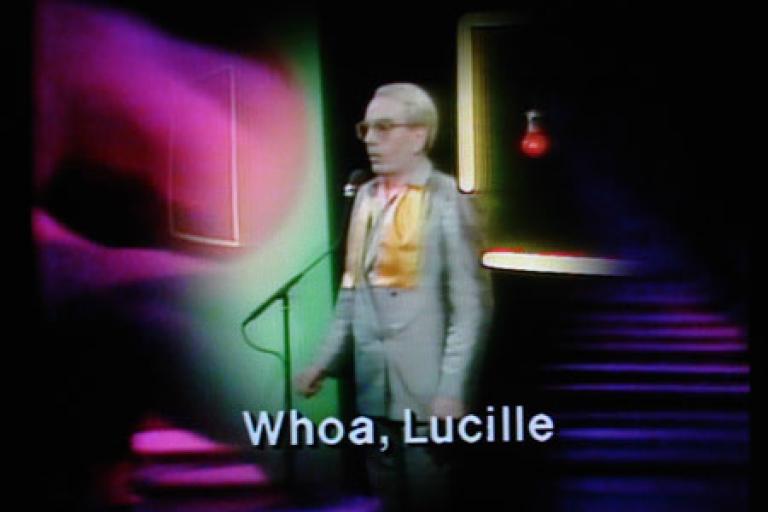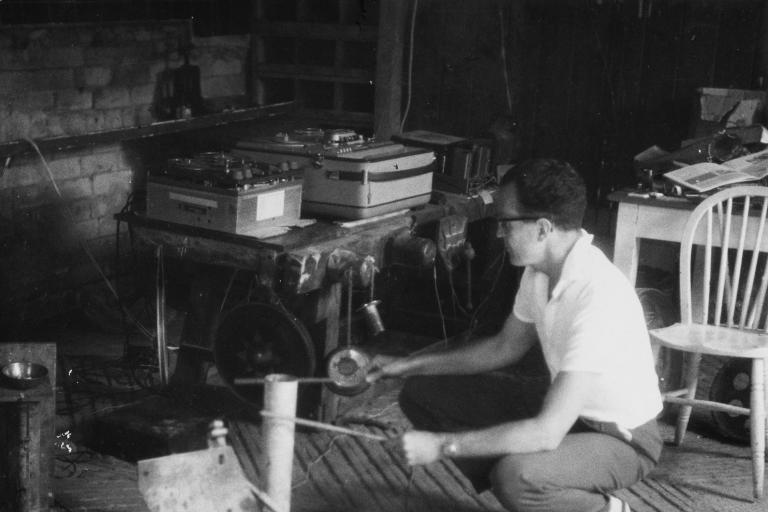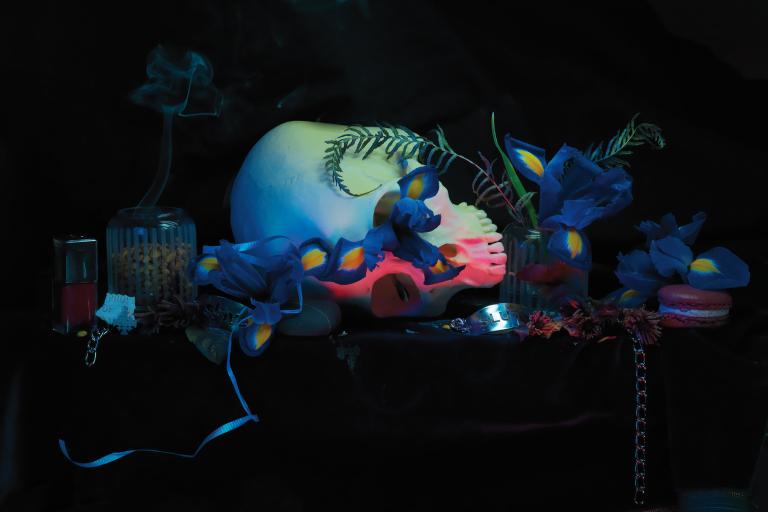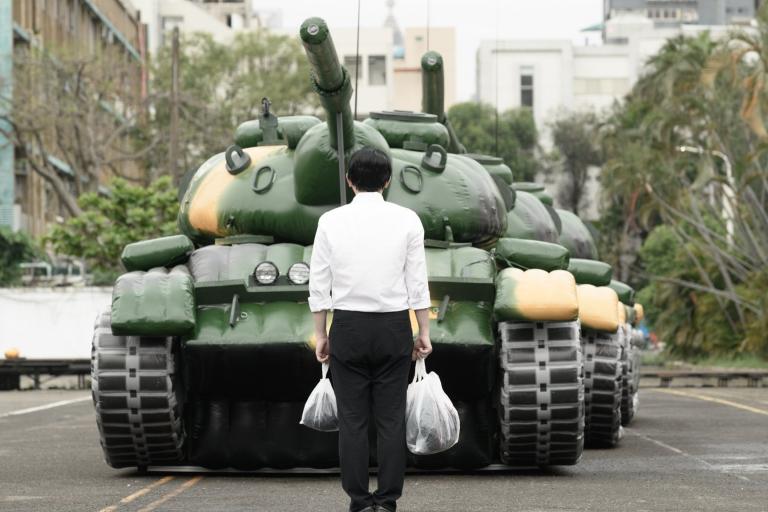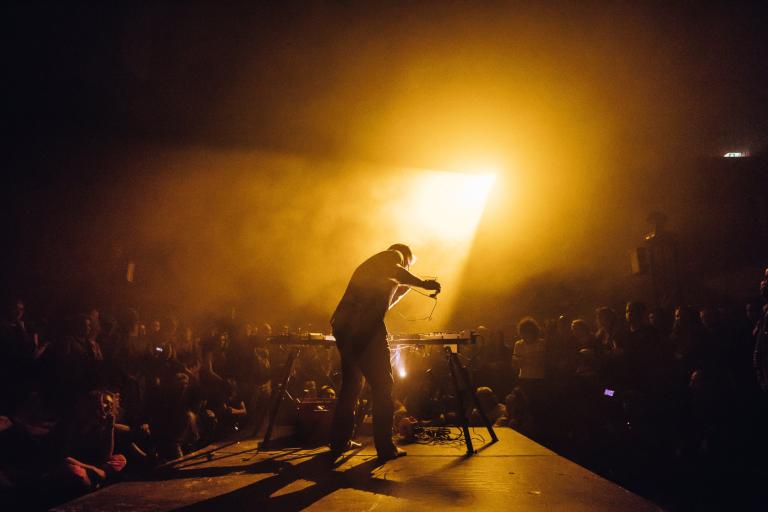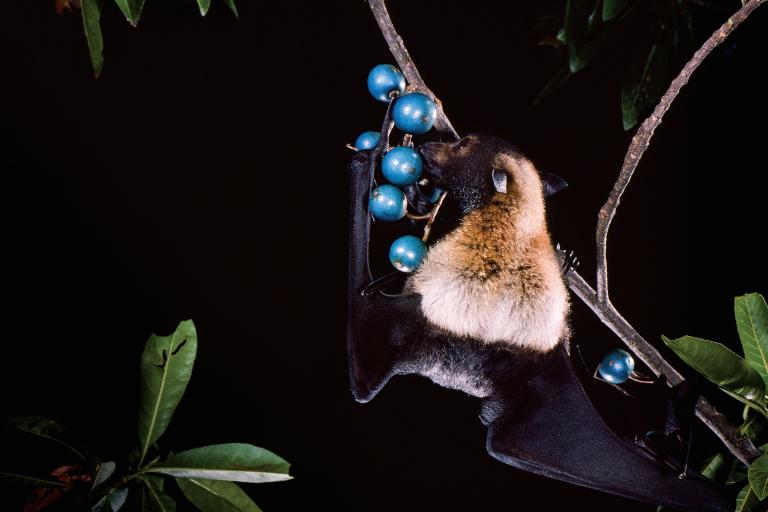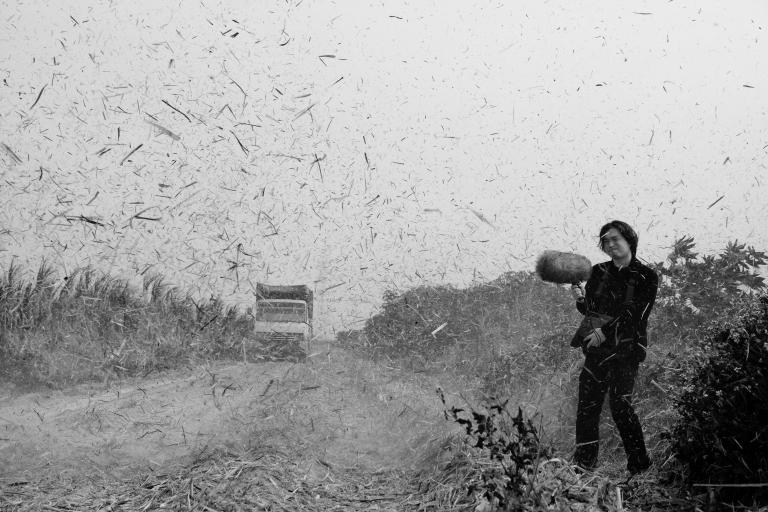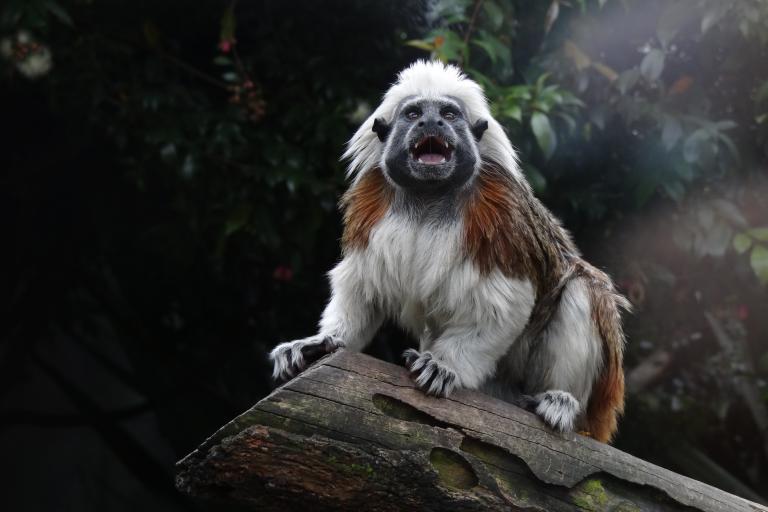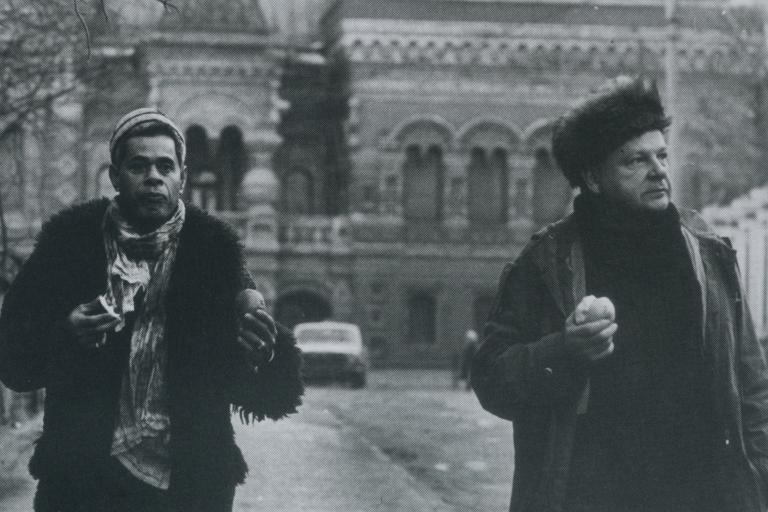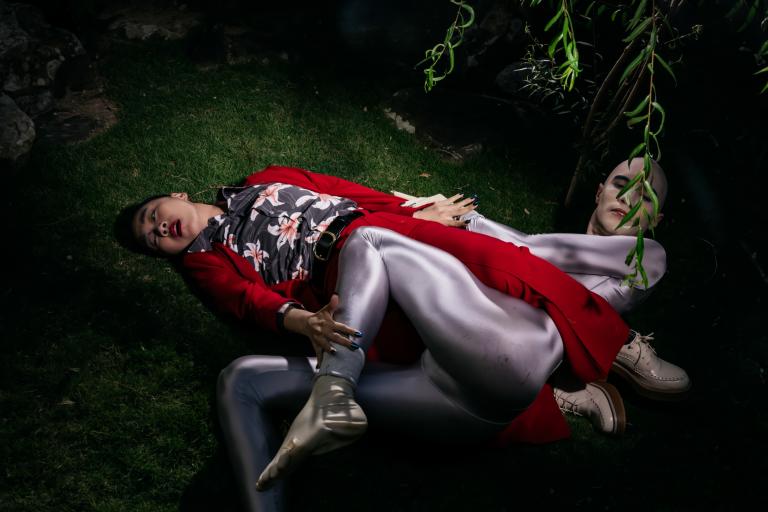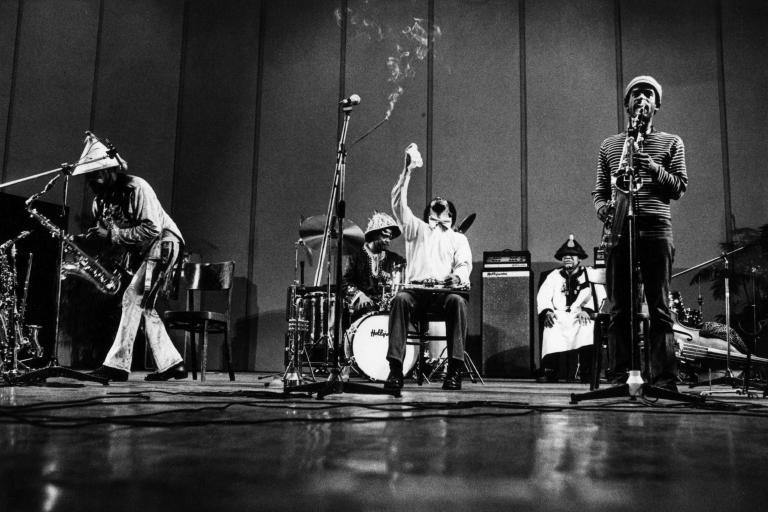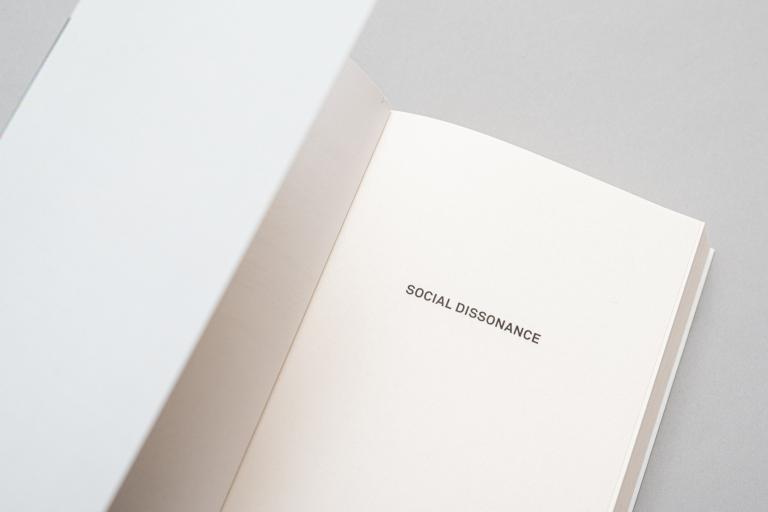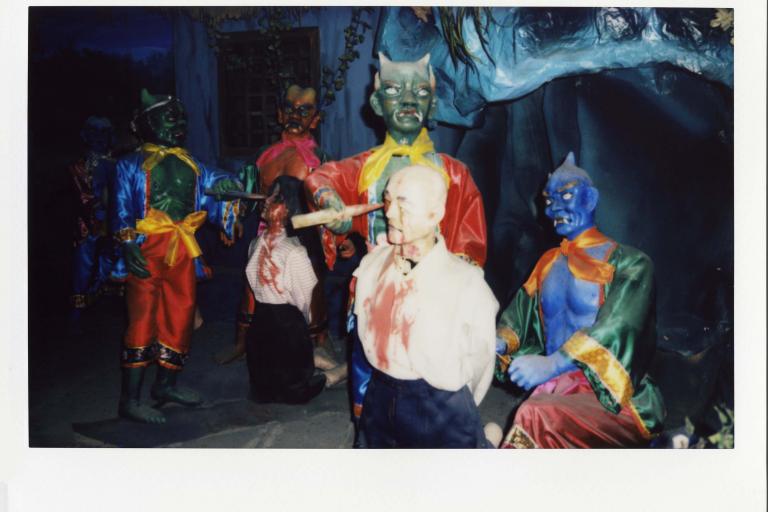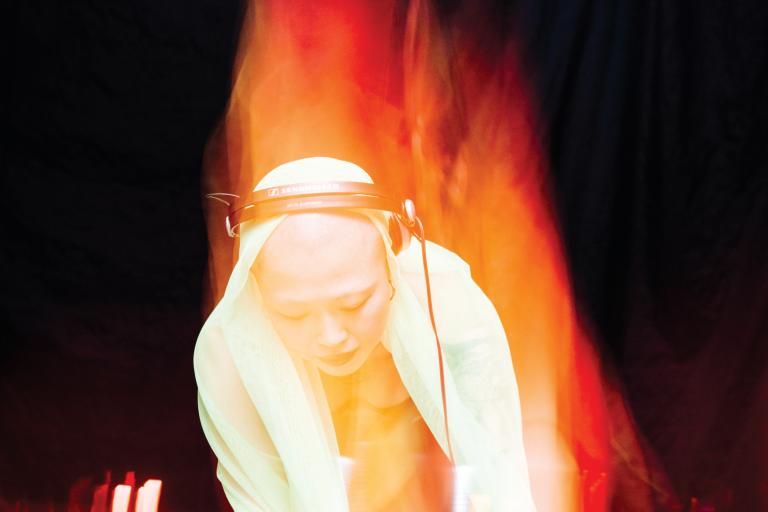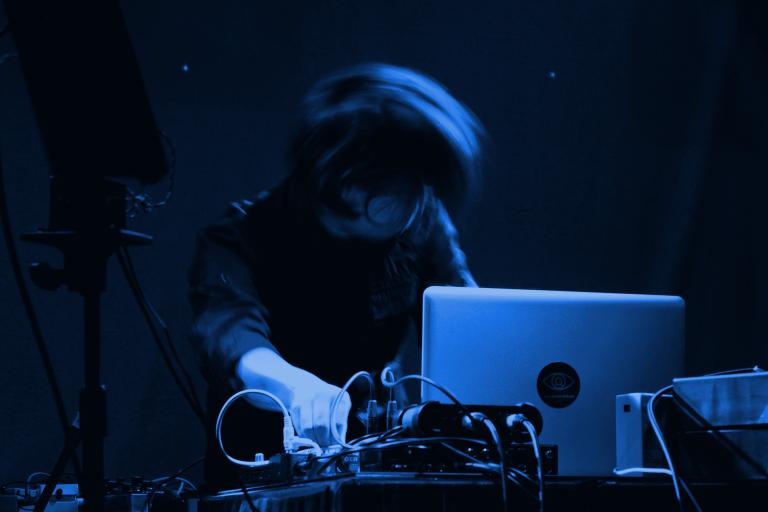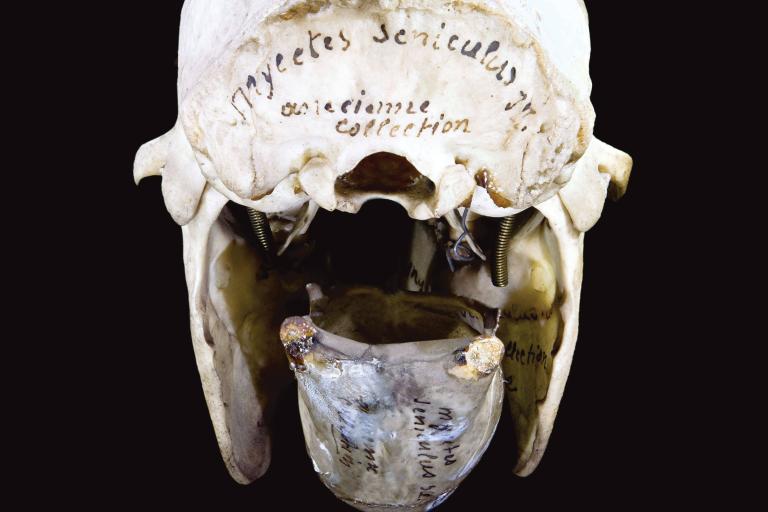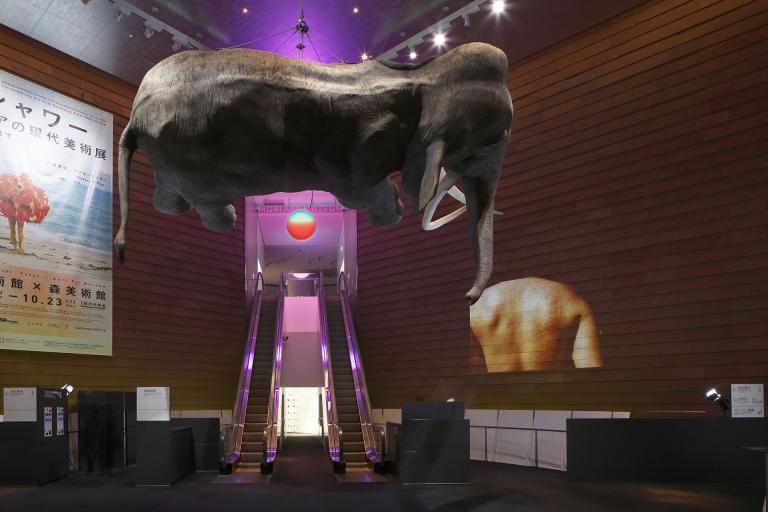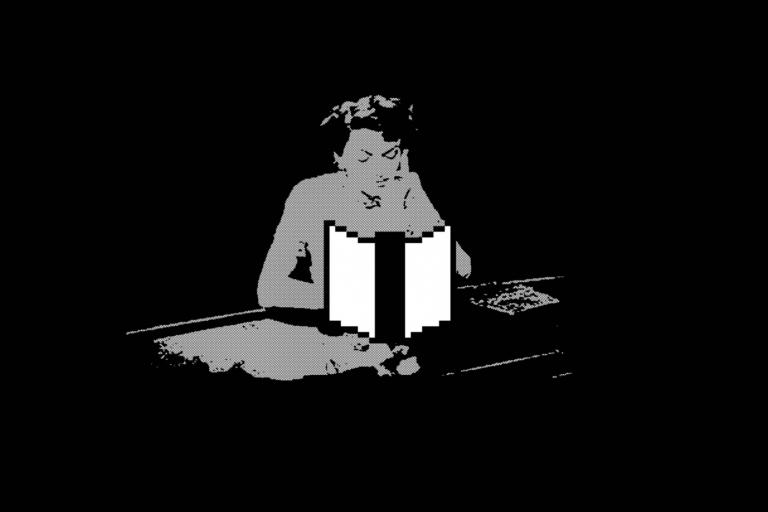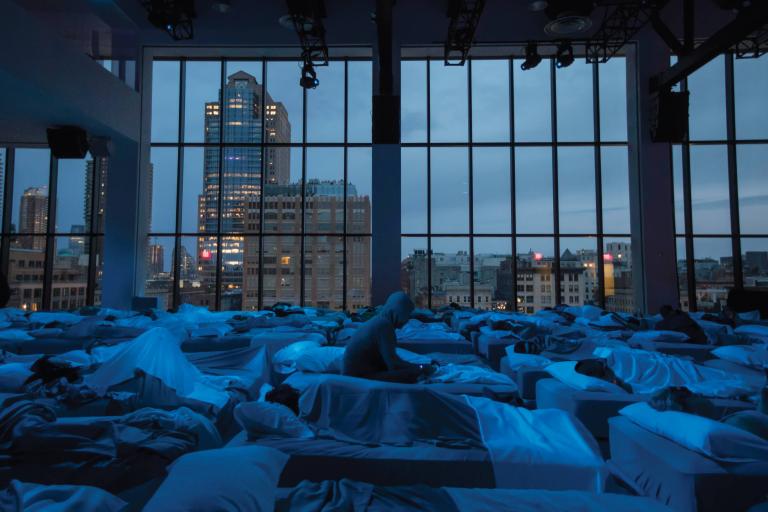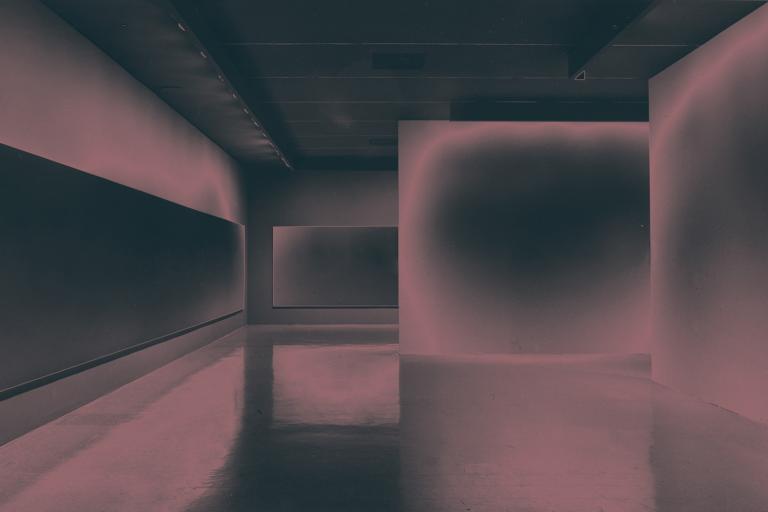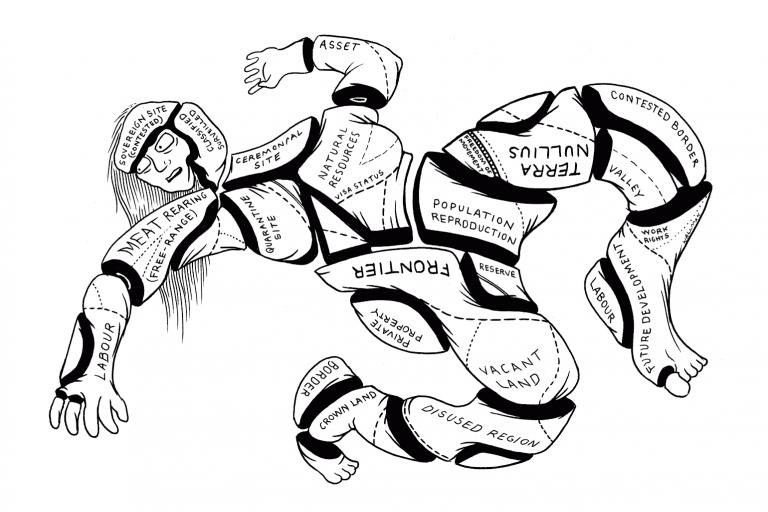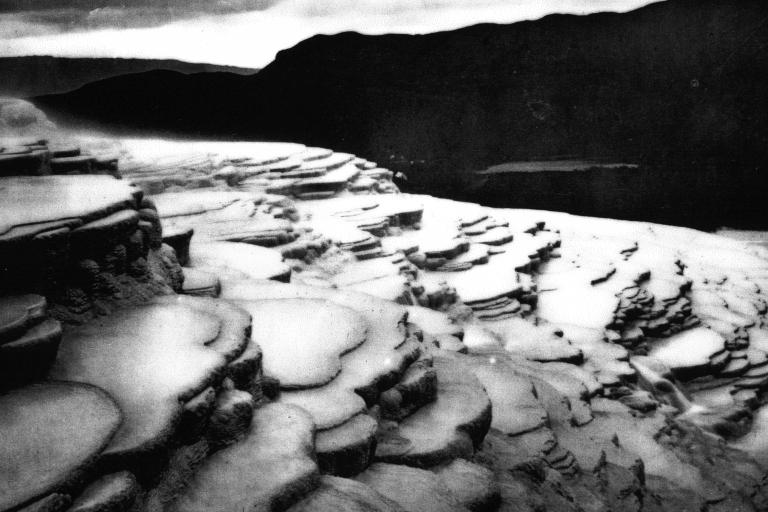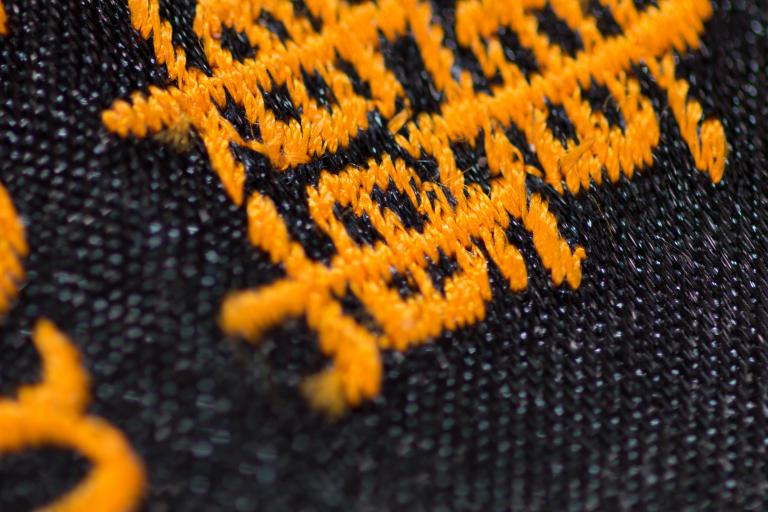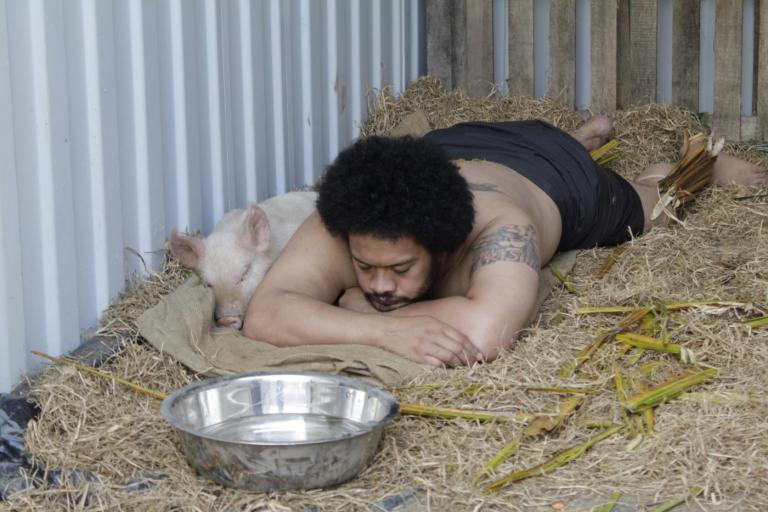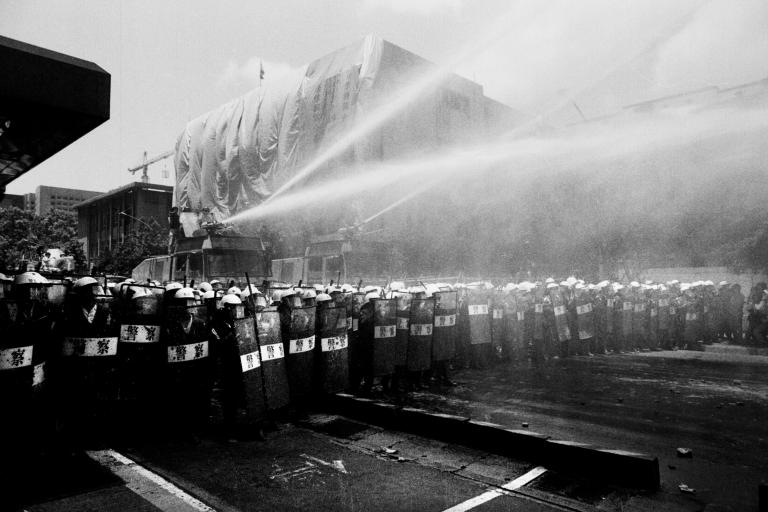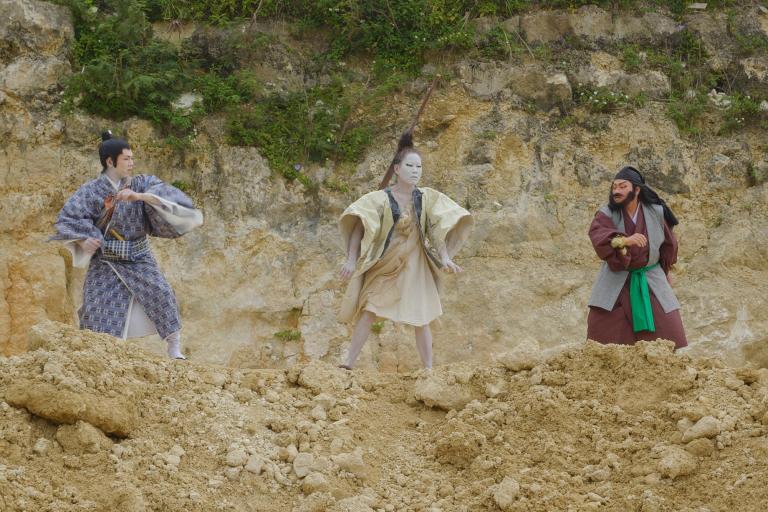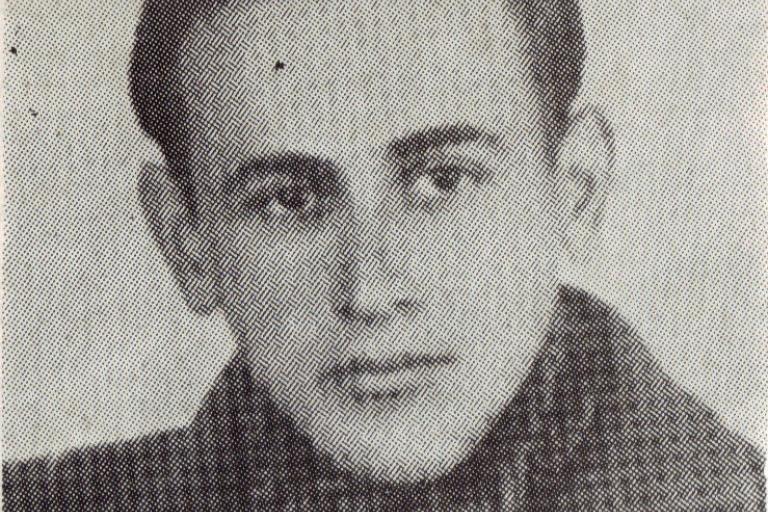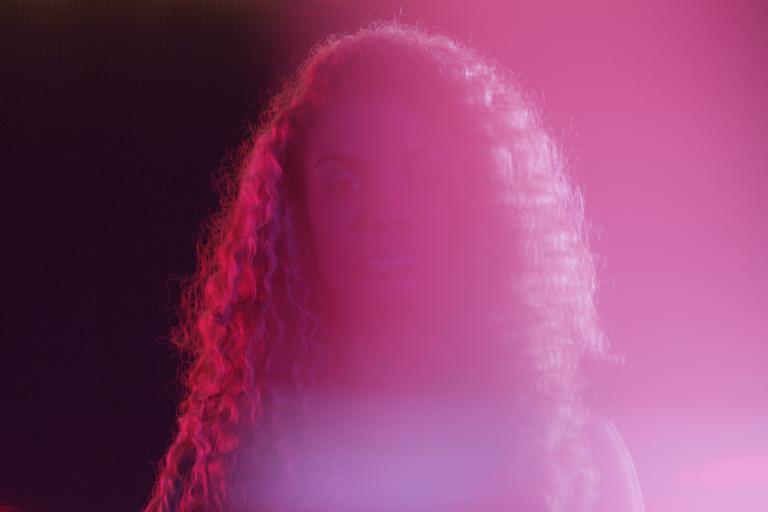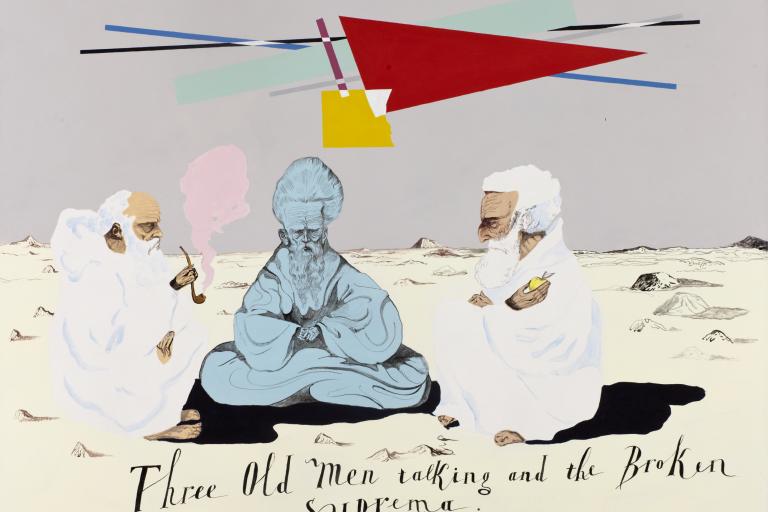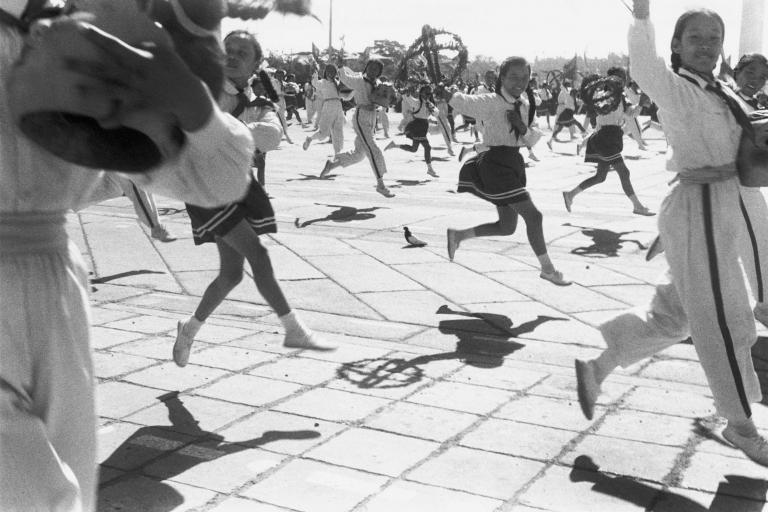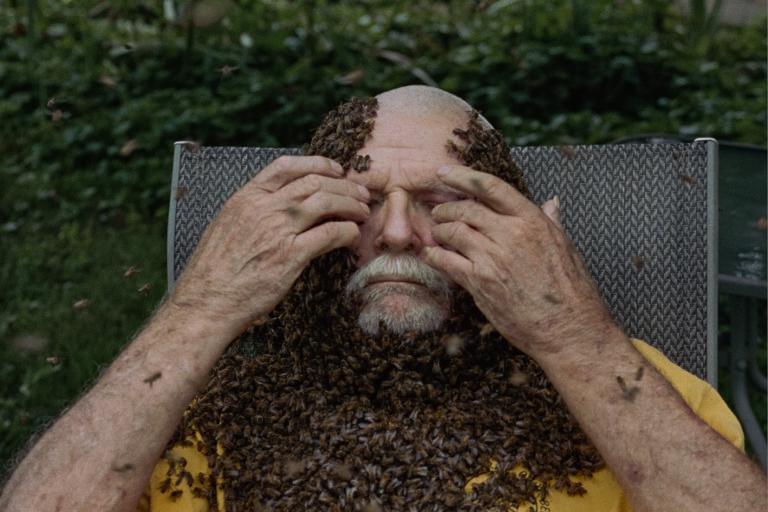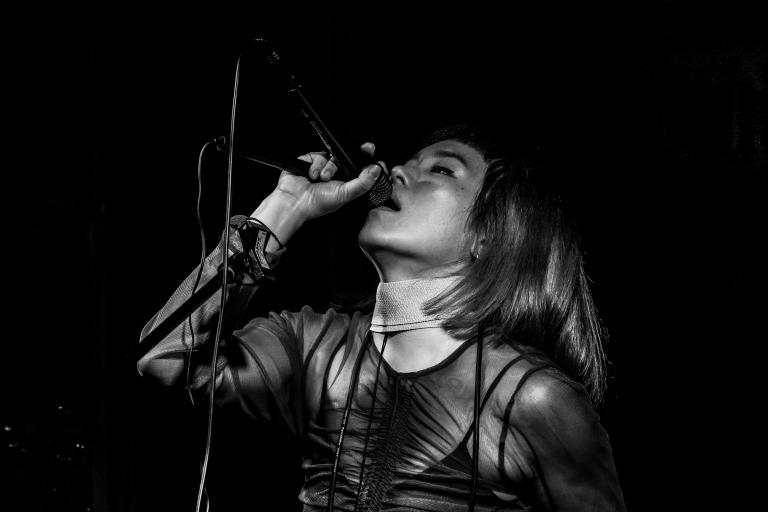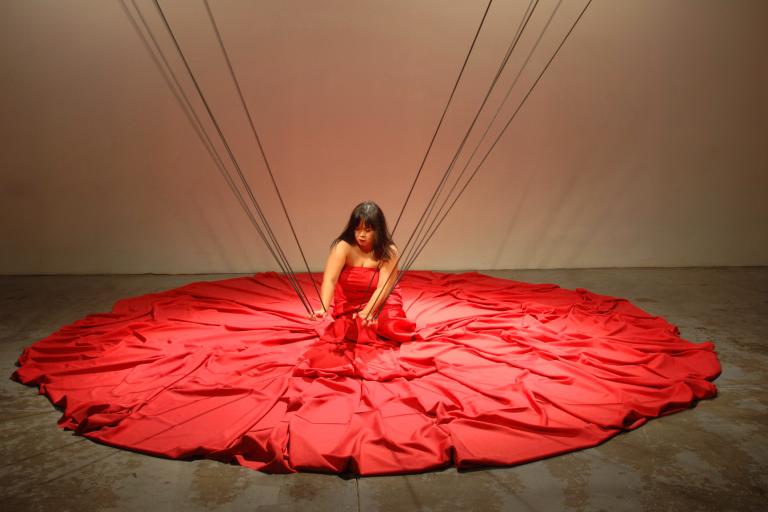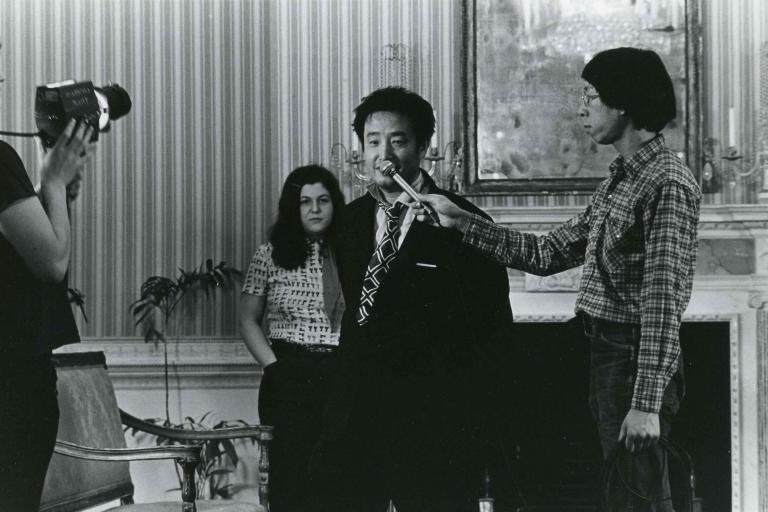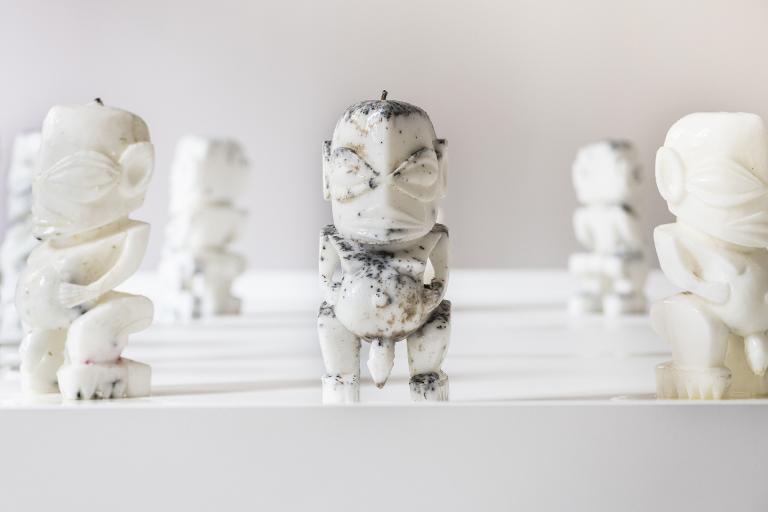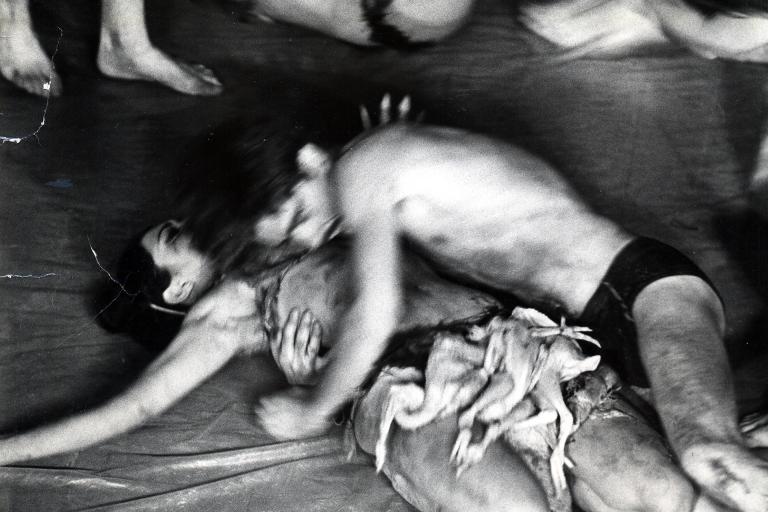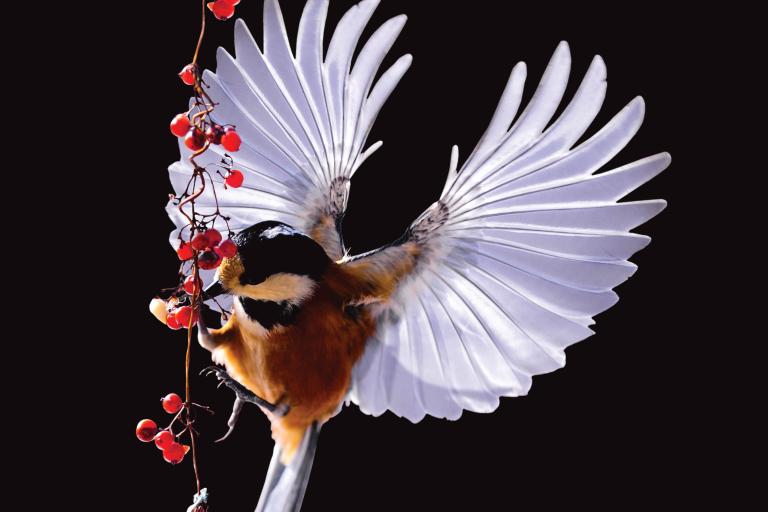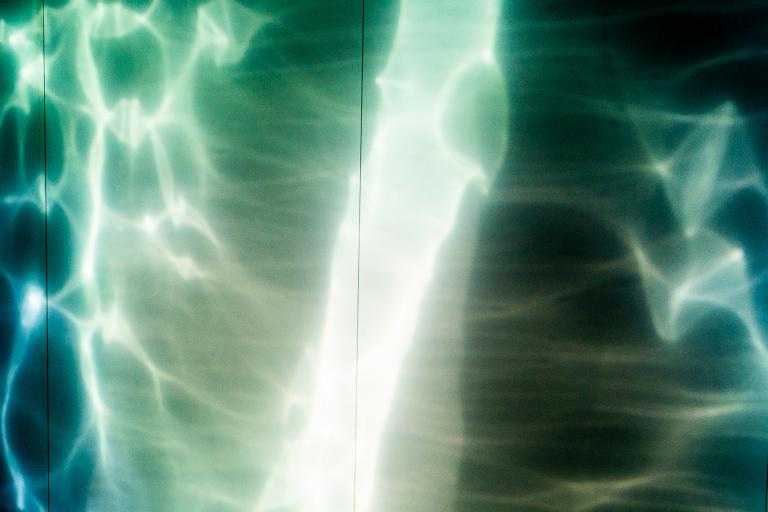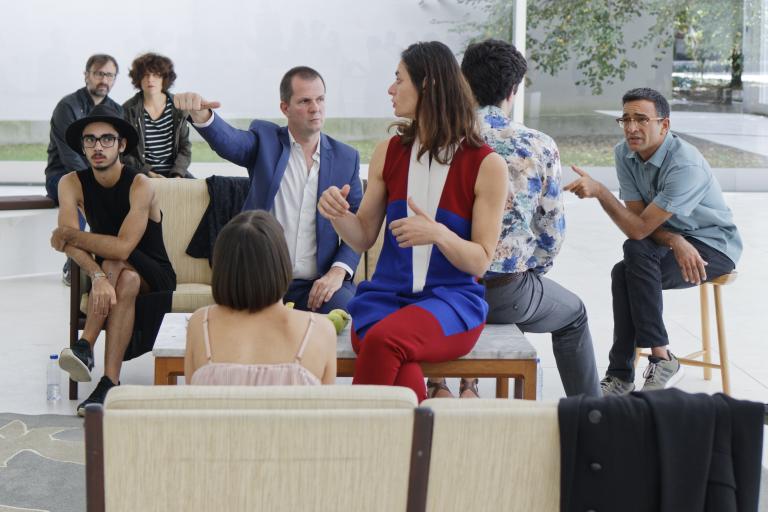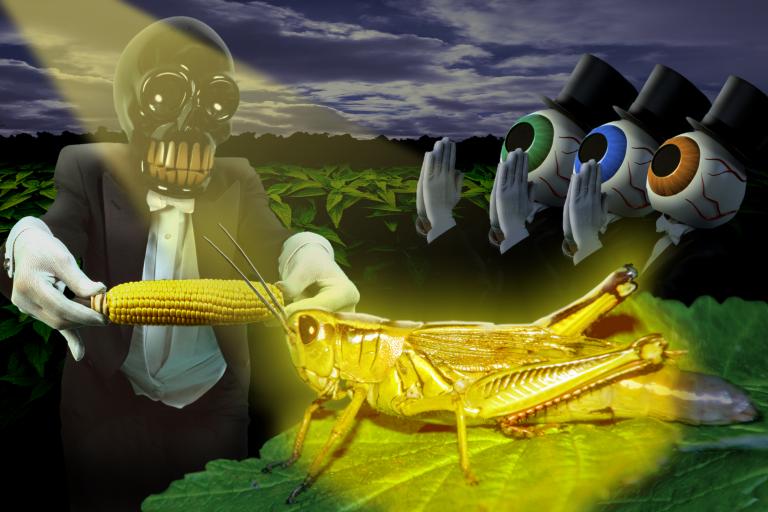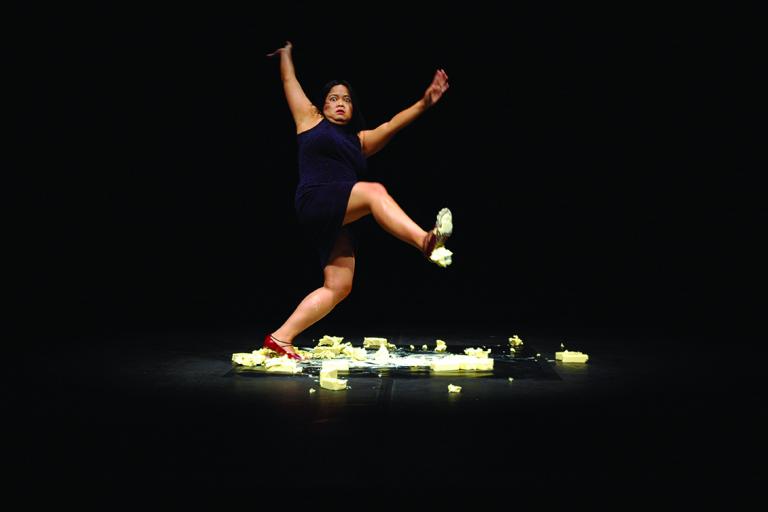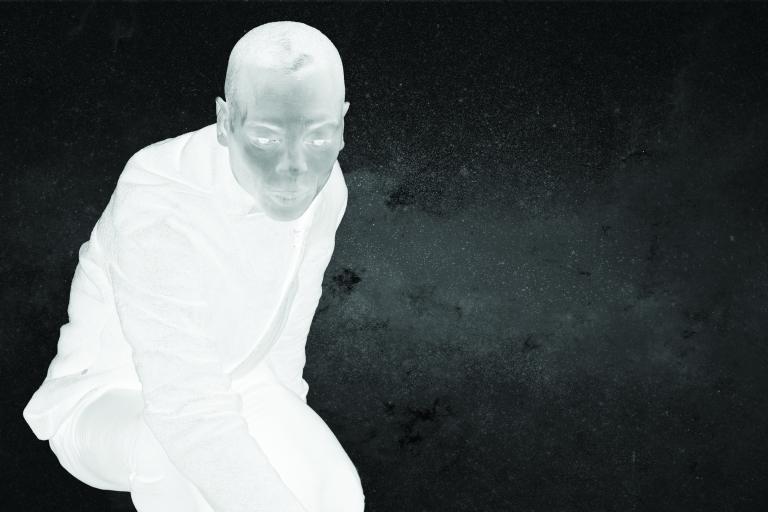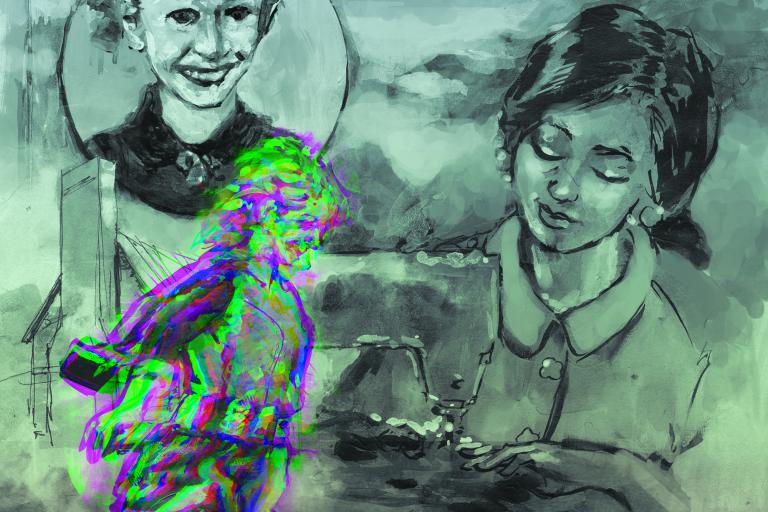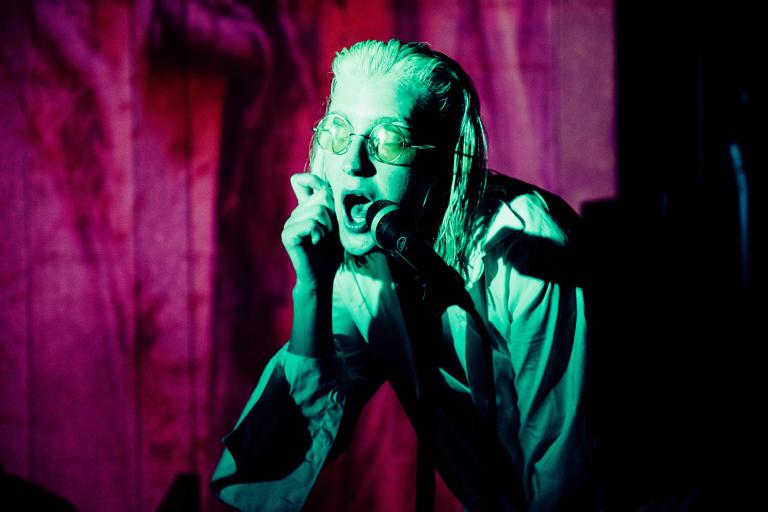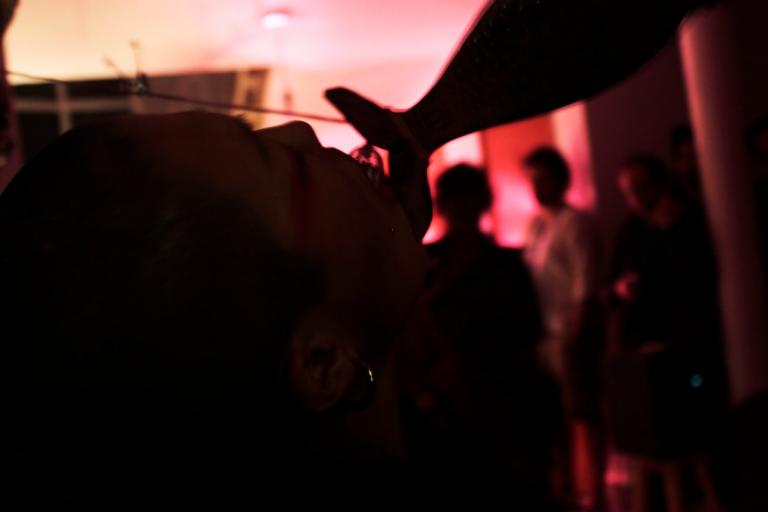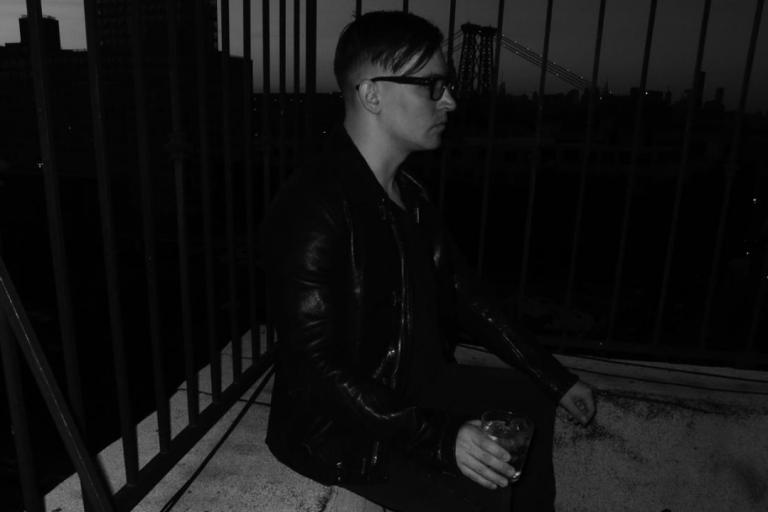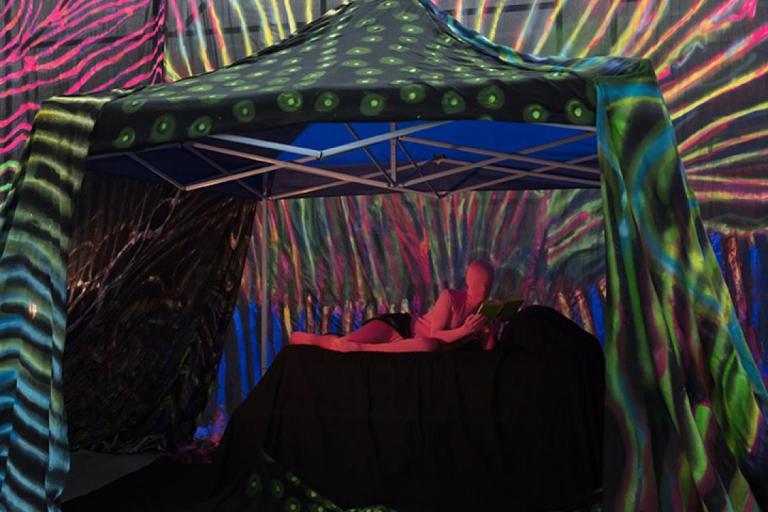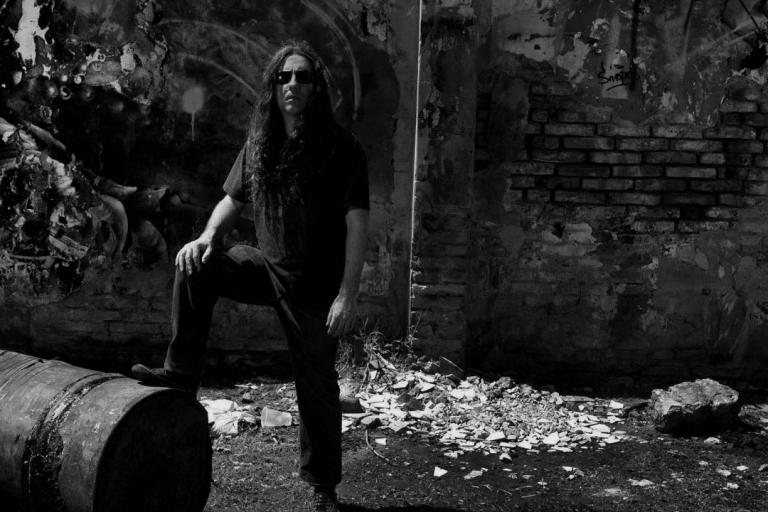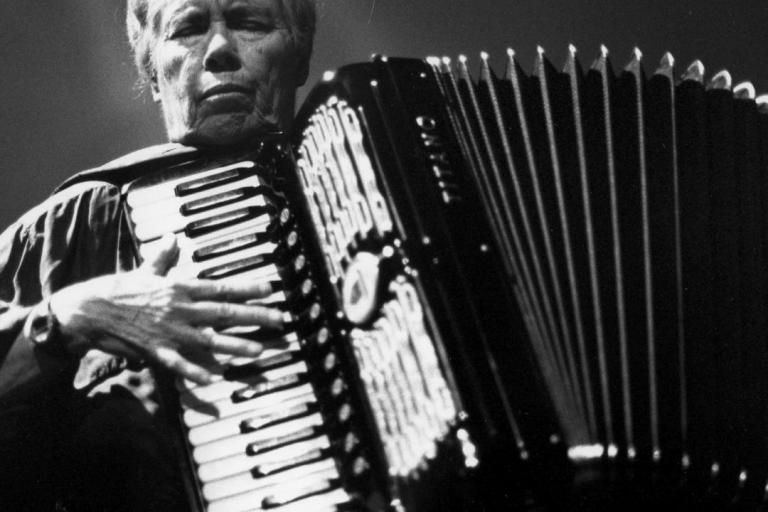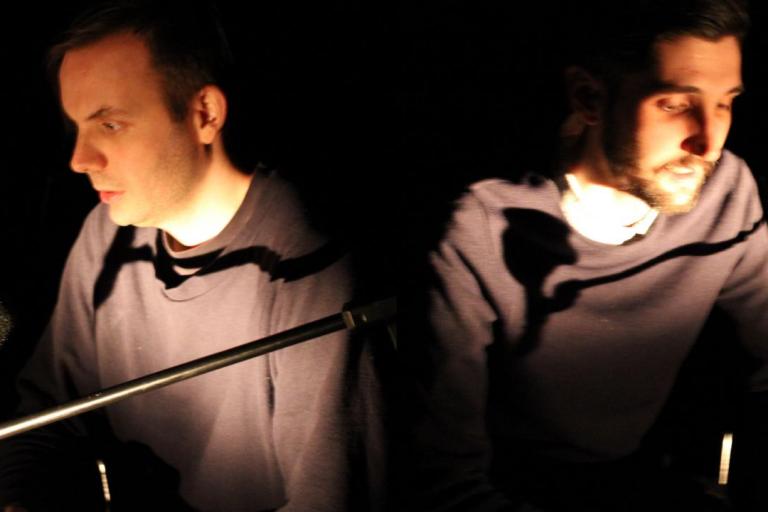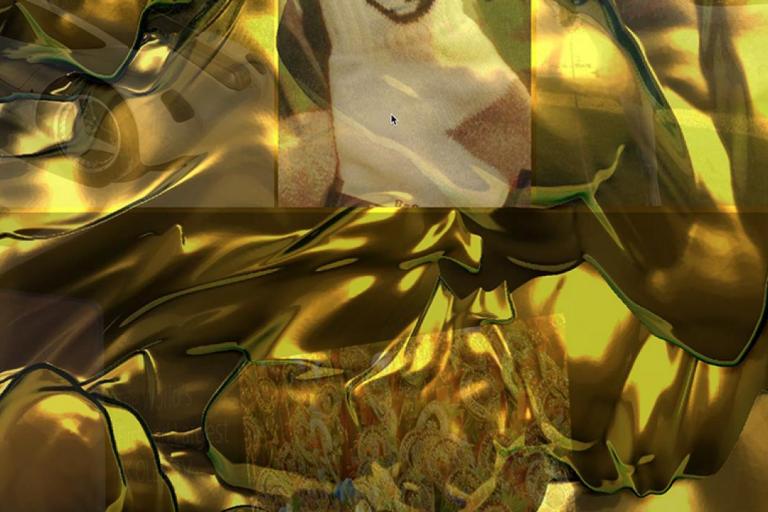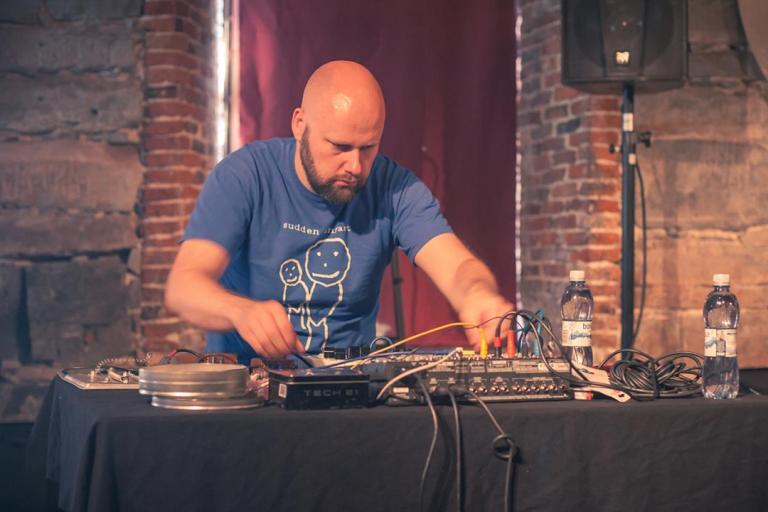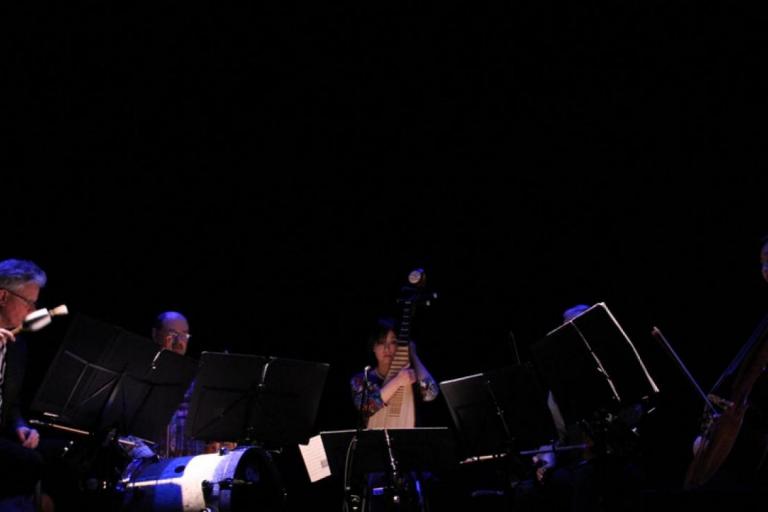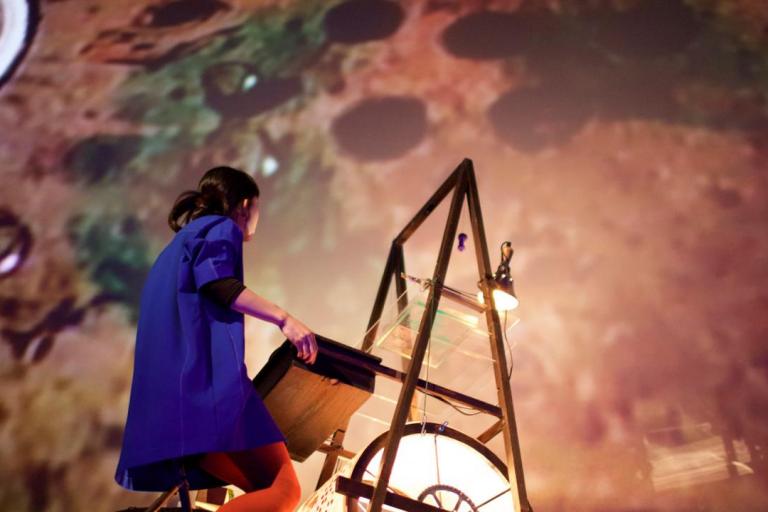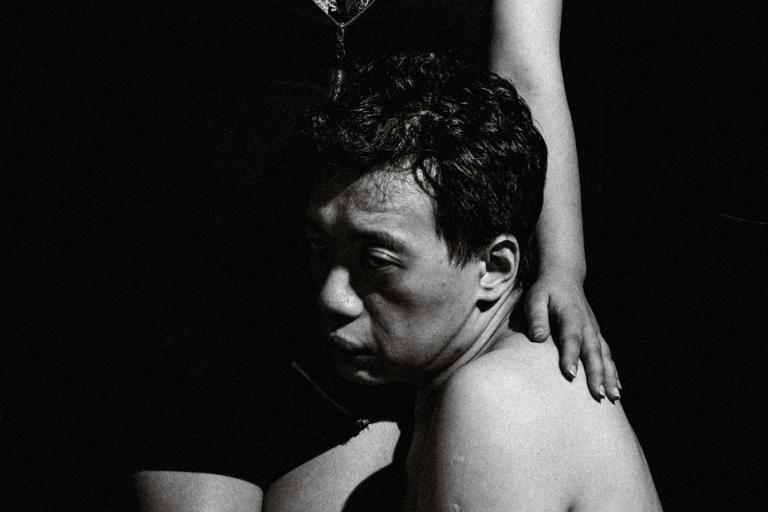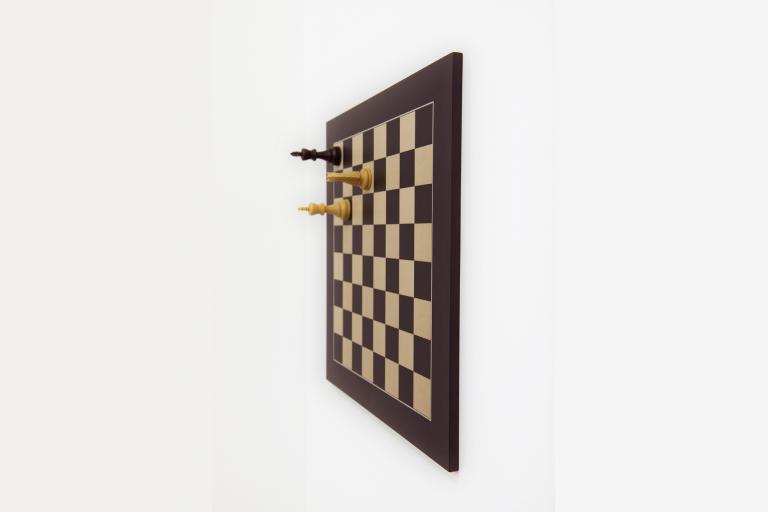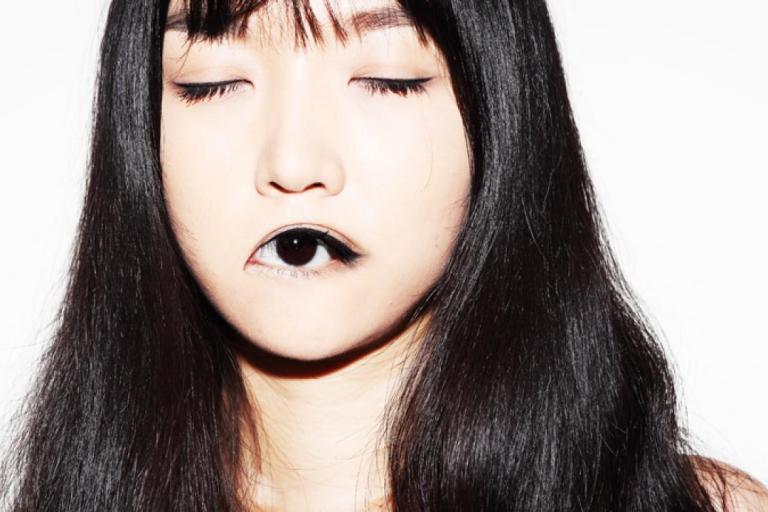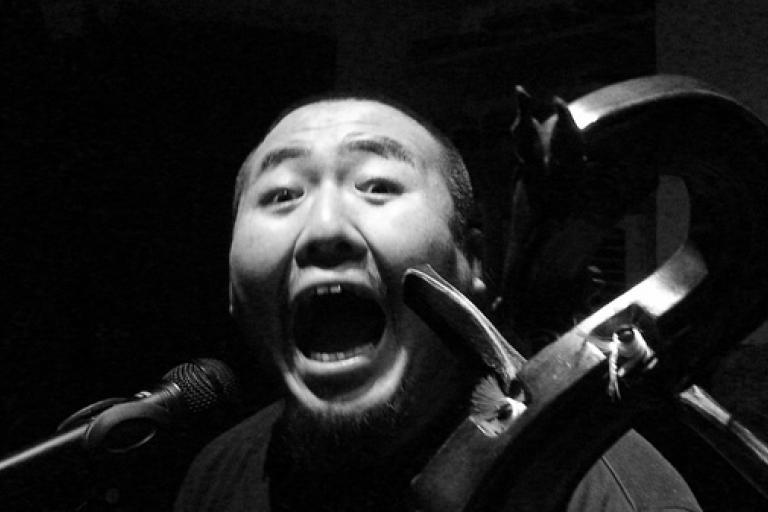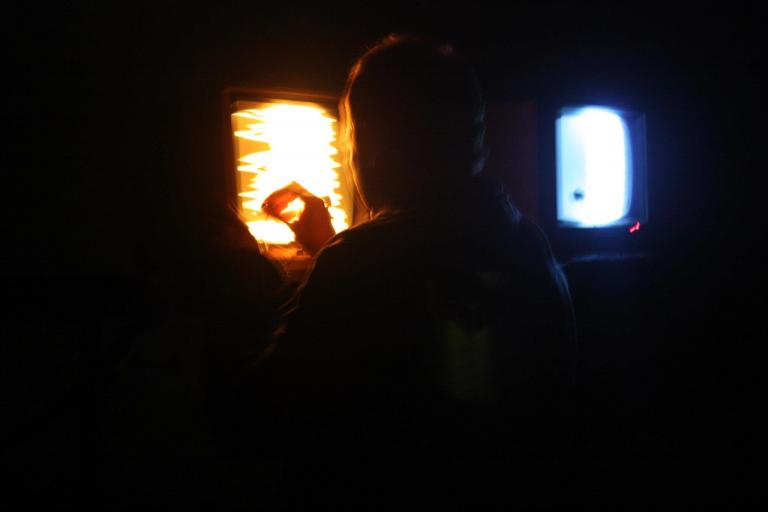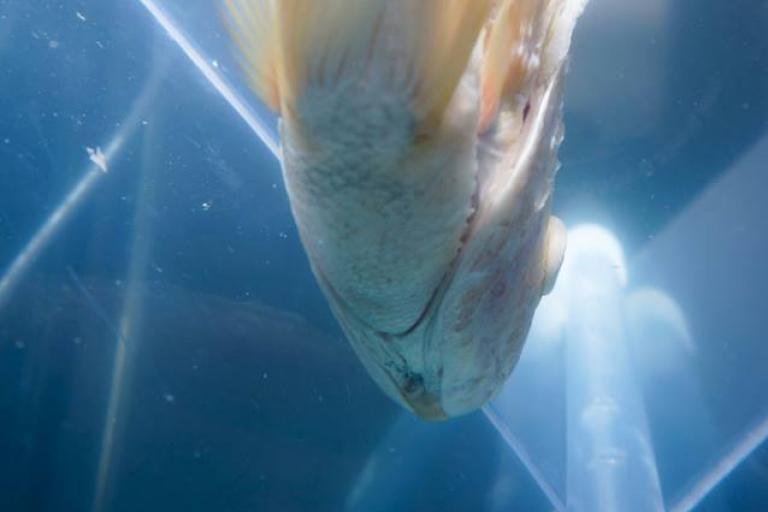Noise Music progenitor Masami Akita, who performs and records under the Dada-inspired name Merzbow, and Hungarian drummer Balázs Pándi have been playing and touring together since 2009. The duo gives performances that meld Pándi’s fluid, powerful improvisational drumming with Akita’s renowned metal and electric paroxysms of sound. In 2018, the pair's touring schedule took them to the Copper Owl in Victoria, BC, on the West Coast of Canada, for a concert organized by experimental multimedia festival Pretty Good Not Bad and community-run gallery the Fifty Fifty Arts Collective. Via an in-person, post-gig conversation with Pándi and a translated email exchange with Akita, the artists generously shared their thoughts on various topics, including beauty, limitations, and records.
Noise music, like punk, is generally seen as antithetical to mastering technique. Could you talk about the kinds of experiences and ideas that are important in your work and life beyond technical instrumental experience?
Masami Akita: I have always asked how much freedom is possible in music production. “Noise Music” was a new approach born from a desire to be free from the existing conventions of playing instruments. Also, I became a vegan in 2003 and achieved new freedom from the conventions of food in human society. To become a vegan is to be free from the shitty society that continues to abuse animals in the name of human conventions, habits, and economic activity.
Balázs Pándi: I try to liberate myself from all expectations and let the moment take over. A good concert is like meditation, and I barely remember anything else besides the feeling of performing. Because of that, anything can be an influence. To see a new site, score a great record, or get pissed at something — all of these can change the music drastically.
Do you impose limits or restrictions on yourself when working, and, if so, how do these relate to ideas of freedom and improvisation?
MA: I prefer to stay in my studio while the production of the music moves from the recording stage through to mixing. Sometimes I use an outside studio when I record with someone else, but honestly, I don't really like that. When I first started playing music, I improvised with an instrument (the drums). However, I eventually realized that my expression was limited by skill. At the time, I was searching for a different style of expression, one that couldn’t be limited by the need for skills, such as having nimble hands. As a result, I started to make collaged tapes and music with various everyday sounds that Id recorded. What I was doing was different from other kinds of contemporary music, such as music concrète, and closer to punk and dadaistic work. I named my very first project “Lowest Music Arts” because Merzbow was a type of artistic expression.
BP: I think the way I approach drumming is almost as limiting as it is liberating. While I work on technical things, I am conscious of not wanting to kill the energy of punk and hardcore that remains a major influence on me to this day. If a technique demands that I change fundamental aspects of my approach, I don’t use it. Also, I spend a lot of time reading and doing research, so knowledge of other things also makes its way into the playing. That’s time spent that I could be using to play paradiddles in my practice space, and then my playing would be tighter, but I don’t care too much about that.
Given that instruments and gear are still an integral part of what you do, could you talk a little more about how you’ve related to them in your career and maybe mention a few pieces of equipment you’re enjoying using now?
MA: I rarely did concerts in the 1980s because I rejected the rock and jazz performance styles. But I started to change my mind in the 1990s and began doing concerts more often. For concerts, I chose an instrument that was small enough to be portable and simple enough to reproduce the music during each concert. The instrument I chose was a piece of metal I found in a field with a contact microphone attached. I played with metal sticks or chains at first; then, I designed the materials into the shape of a guitar for easier playing. The type of effector I've used has changed over time, but the style of playing — using metal materials with a contact microphone and amplifier modulated by an effector — hasn't changed much since I began. I'm currently using a Hexe Revolver, Bastl Instruments MicroGranny 2, and Dreadbox Sonic Bits.
BP: I’m not the kind of drummer people can walk up to and talk to about toms or gear, or drum sets or drummers, because I am not a drum nerd at all. Of course, some drummers I enjoy more than others, but I would say most of my favorite musicians aren’t drummers, and I barely listen to the kind of music we play. Another element of it is that the more you rehearse and the more time you spend with your instrument, the more the instrument becomes demystified. You start to discover the previously unknown attractiveness of other instruments.
What’s your take on the difference between the beauty people find in harmony and order versus that of dissonance and chaos?
MA: Just as Andre Breton expresses in Nadja in the sentence, “Beauty will be CONVULSIVE, or it will not be at all,” what we call beauty is something that has transcended both harmony and disharmony.
BP: Sun Ra wrote out many of his solos note-by-note for his musicians, but many people think of them as improvised solos; it's the same thing with Coltrane. I think some of the most interesting territories is when you can’t really tell if music is improvised or written, and you don’t really care anyway, as the feel of it just blows your mind. So I would say that beauty is in the balance of harmony and disharmony, or order and chaos.
You had less than a day here, but what was your experience of Victoria like?
MA: If I had more time, I would have liked to have enjoyed Victoria’s wildlife. However, despite only being there for one day, I was fortunate to have encountered some wild seals and deer.
BP: We went out to the harbor and watched the seals, and I could totally feel Masami’s energies were lifted, and that was something I was feeding off of during the performance. So yeah, there are a lot of non-musical things that end up in what we play.

You’ve been playing and touring together for almost a decade now. What are some of the factors that have sustained this collaboration?
MA: I first worked with Balázs in 2009. Right around then, I was starting to play the drums myself and use them in my work, so the choice to perform with drums came naturally. Balázs is a superb drummer who can move fluidly through musical genres such as grindcore, metal, and free jazz. Also, he understands my vegan lifestyle. And he’s a record collector, which is something we have in common. So it’s enjoyable to tour with him.
BP: When we started playing together, I witnessed firsthand how committed Masami is to his art; that’s rare these days. I’ve also been exposed to a lot of great music that I wouldn’t have experienced otherwise, because who else would show me Hairy Chapter or other German classic rock? Masami must have the largest record collection in the world, judging from the number of records I’ve seen him pick up, and we’re always swapping music and recommending things to each other. The human part really works between us. I consider Masami, a close friend, and that’s one thing that keeps us going. We have a lot in common, and I’m sure this translates into the music, too. Also, we both come to each tour or recording with something fresh to drop. I never saw Masami using the exact same setup on two tours, while I also hit my practice room before the tours so that I can drop new things into the collaboration.
Record collecting is obviously a big part of your lives. Could you talk about that process or even list some records you’ve bought lately that you’re happy with?
MA: Douglas Leedy, Entropical Paradise Electronic Music, Vol. IV (a selection of works by the winners of the First International Electronic Music Competition at Dartmouth College in 1968) Les Percussions de Strasbourg / George Pludermacher / André Boucourechliev Boucourechliev, Archipel 3 Harry Partch / Gate 5 Ensemble, And On The Seventh Day Petals Fell In Petaluma The Don Heckman, Ed Summerlin Improvisational Jazz Workshop John Pfeiffer, Electronomusic — 9 Images Andrew Rudin, Tragoedia Charles Tyler/Ensemble, Voyage From Jericho Arel / Davidovsky / Ussachevsky, Son Nova 1988 Electronic Music
BP: This is the second city on this tour, and I’ve already acquired 50 records, so it's pretty hard to pick. But I think I am most excited to find some records from the Canadian label Sackville Records, although I couldn’t score all of the crucial free jazz records I wanted. The biggest find was a record called Electronic Essays with two mesmerizing pieces by Hungarian-born composer István Anhalt, who was unknown to me before seeing the record at Neptoon Records. I also scored a rare Sun Ra 7”, and the Canadian pressing of Mississippi Fred McDowell’s "I Do Not Play No Rock N Roll". Beat Street was great for many rap singles; my Kool Keith and Get Boys sections improved a lot.

